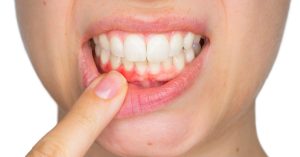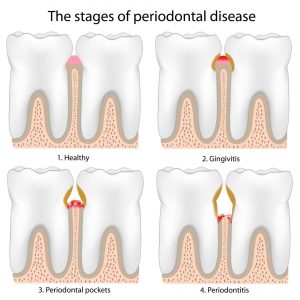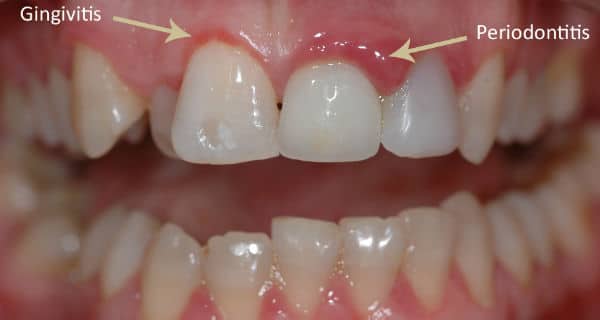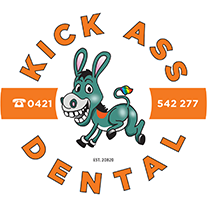Can You Fix Gum Disease? A Comprehensive Guide to Treatment and Prevention
Understanding Gum Disease
What is Gum Disease?
Gum disease, also known as periodontal disease, is a common oral health condition that affects the gums and supporting structures of the teeth. It is primarily caused by bacterial infection and can lead to serious complications if left untreated. The condition progresses through different stages, starting with gingivitis and potentially advancing to periodontitis. Can you fix gum disease?
The Importance of Early Detection
Early detection of gum disease is crucial for successful treatment and prevention of further damage. Regular dental check-ups and good oral hygiene practices can help identify gum disease in its initial stages. Paying attention to symptoms like red, swollen, or bleeding gums, persistent bad breath, and receding gum lines can also alert you to the presence of gum disease.
Treatment Options for Gum Disease
Non-Surgical Treatments
Non-surgical treatments are often the first line of defense against gum disease, particularly in the early stages. These treatments include:

1. Professional Dental Cleaning
Professional dental cleanings, also known as scaling and root planing, are essential for removing plaque and tartar buildup from the teeth and gumline. This procedure is typically performed by a dental hygienist and helps reduce inflammation and bacterial infection.
2. Antibiotics
Antibiotics may be prescribed to control bacterial infection in the gums. They can be administered orally or applied directly to the affected areas using gels or mouth rinses.
Surgical Treatments
If gum disease has progressed to an advanced stage, surgical intervention may be necessary. Some common surgical treatments include:
1. Flap Surgery
Flap surgery involves lifting the gums to remove tartar deposits and reduce pocket depth. This procedure allows the dentist to thoroughly clean the roots of the teeth and create a better environment for healing.
2. Bone Grafts
In cases where gum disease has caused significant bone loss, a bone graft may be necessary. During this procedure, synthetic or natural bone is transplanted to the affected area to stimulate new bone growth and support the teeth.

Preventing Gum Disease
Maintaining Good Oral Hygiene
Prevention is key when it comes to gum disease. Here are some essential steps you can take to maintain good oral hygiene and prevent gum disease: Fix gum disease here.
1. Brushing and Flossing
Brush your teeth at least twice a day using a soft-bristled toothbrush and fluoride toothpaste. Don’t forget to floss daily to remove plaque and food particles from between your teeth and along the gumline.
2. Using Mouthwash
Using an antibacterial mouthwash can help kill bacteria and reduce plaque buildup. Look for a mouthwash that contains ingredients like chlorhexidine or essential oils known for their antimicrobial properties.
3. Regular Dental Check-ups
Schedule regular dental check-ups and professional cleanings to monitor your oral health and catch any potential issues early on. Your dentist can provide personalized advice and recommend appropriate treatments or preventive measures.
4. Healthy Lifestyle Choices
Maintain a balanced diet, limit sugary snacks and beverages, and avoid tobacco use. These lifestyle choices can significantly contribute to better oral health and lower the risk of gum disease.
The Road to Healthy Gums
Gum disease is a common yet preventable condition. By practicing good oral hygiene and seeking timely treatment, you can improve the health of your gums and prevent further complications. Remember, gum disease is not something you should ignore or underestimate. It can lead to tooth loss and even impact your overall health.
If you suspect you have gum disease or notice any symptoms, make an appointment with your dentist as soon as possible. They will evaluate your oral health, determine the stage of gum disease, and recommend appropriate treatment options. Remember to prioritize regular dental check-ups and maintain a consistent oral care routine at home.
Taking care of your gums goes beyond just brushing and flossing. It requires a holistic approach that includes a healthy diet, avoiding harmful habits, and staying on top of your oral hygiene practices. By doing so, you can keep gum disease at bay and enjoy a lifetime of healthy smiles.
In conclusion, yes, gum disease can be treated and even reversed with the right interventions. Early detection, prompt treatment, and consistent preventive measures are key to managing gum disease effectively. By incorporating these strategies into your daily routine, you can take control of your oral health and maintain strong, healthy gums for years to come.
Summary
Gum disease, or periodontal disease, is a common condition caused by bacterial infection. It can lead to serious oral health complications if left untreated. However, with early detection and appropriate treatment, gum disease can be addressed effectively. Non-surgical treatments such as professional dental cleanings and antibiotics are often used in the early stages, while surgical treatments like flap surgery and bone grafts may be necessary in advanced cases. Prevention plays a crucial role in maintaining healthy gums, and it involves maintaining good oral hygiene practices, scheduling regular dental check-ups, and making healthy lifestyle choices. By prioritizing your oral health and seeking professional care when needed, you can fix gum disease and enjoy a healthy smile. Can you fix gum disease?





